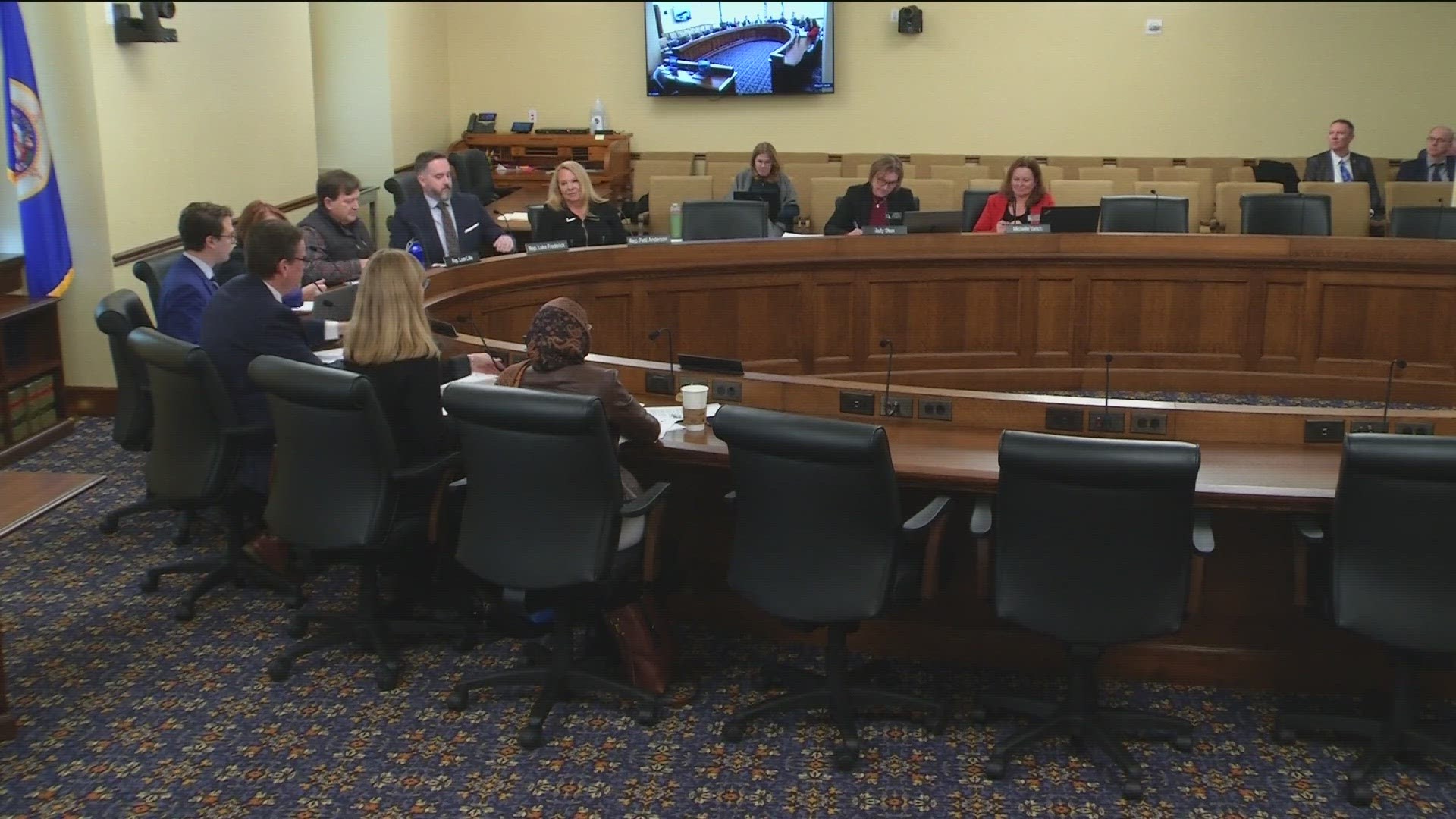ST PAUL, Minn. — Republican lawmakers are frustrated that the legislature doesn't have veto power over state worker union contracts. They’re raising those objects at a time when unionized state government employees have secured historic wage hikes in contract negotiations.
The largest union contracts featured a 5.5% raise in Fiscal 2024, which began in July. That will be followed by a 4.4% increase starting in July of 2025. More than half of the state government workforce will also be eligible for a 3.5% step increase, which recognizes years of service, each calendar year.
"The average person today is not getting 5.5%, nor are they getting an additional 3.5%. And the average citizen has no idea," State Senator Mark Koran, a North Branch Republican, told his colleagues Tuesday during a meeting of the Legislative Coordination Commission’s Subcommittee of Employee Relations.
Koran asserted when those contract increases and step increases are are added up, some unionized state employees will see a 17% raise across the next two years.
"That’s 17% over a biennium — there's nobody in the private sector getting that, even in these difficult times," he stated.
There are roughly 50,000 state employees in Minnesota, and 90% of them are covered by negotiated union contracts. They range from prison guards, state troopers, park rangers, game officers, bridge inspectors, pollution monitors, disease trackers, medical staff, snowplow drivers and many other types of positions.
Koran’s fellow Republican, Rep. Marion Rarick, decried the fact the full legislature no longer has the power to accept or reject those contracts. Those deals are negotiated between the union bargaining units and Minnesota Management and Budget, a department within the executive branch.
"The interim approval portion is taken away," Rarick said. "The ratification of the legislature has been taken away. So, it's just really on autopilot. And it's really, really sad to me."
Democrats said they needed to remove legislative control because they didn't want state worker contracts to be held hostage as bargaining chips in last-minute negotiations in the legislature. They assert that unions negotiate contracts with the executive branch, not the legislative branch.
Sen. Erin Murphy, the St. Paul Democrat who chairs the subcommittee, noted that lawmakers indirectly control pay by setting how much state agencies can spend each during a two-year cycle through budget bills.
"But I want to remind everybody that what we're really talking about are Minnesotans who live across the state," Sen. Murphy told fellow lawmakers.
"They live in every part of the state. They're working to serve the people of Minnesota. We're recognizing their work in different places with these contracts that we did not negotiate."
One of the major arguments for better state contracts is that the state must compete with cities, counties and private sector for the same group of workers. Republicans on the panel acknowledged that reality, but they still maintain that the legislature should have more control over how high those contracts can go and more controls in place to ensure that merit pay raises are actually warranted.
Union reaction
Megan Dayton, the president of the Minnesota Association of Professional Employees, or MAPE, released this statement:
"The Minnesota Legislature determines what the agencies receive in terms of funding during the budget process. After the budget is set, our members negotiate with the executive branch to ensure that the state employees responsible for delivering vital services and programs to all Minnesotans have fair terms and conditions of employment."
Bart Andersen, the interim executive director of the American Federation of State County and Municipal Employees Council 5 defended the new system.
"The need for this historic change in the state contract ratification process is clear because the 43,000 union members we represent, including 18,000 Minnesota state employees, are sick and tired of being treated as political pawns in a chess match at the capitol and constantly used as bargaining chips by politicians," Andersen told KARE.
"Now, once a collective bargaining agreement is reached in good faith by both sides and our union members vote to ratify the agreement, they are implemented without anti-worker lawmakers holding state employees hostage for political purposes."
Watch more local news:
Watch the latest local news from the Twin Cities and across Minnesota in our YouTube playlist:

